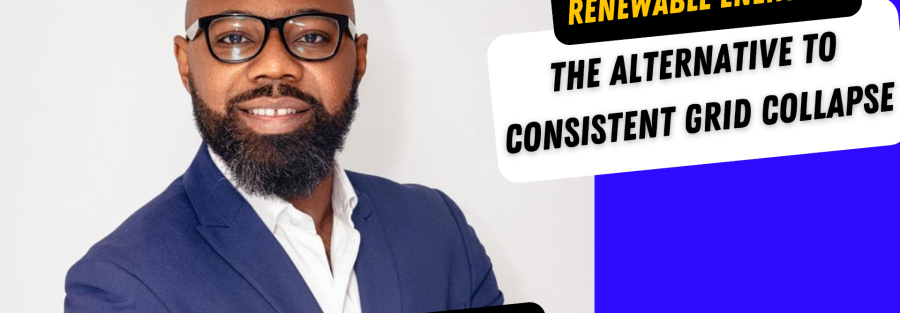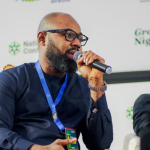In a recent interview on PlusTV, Michael Olaitan, co-founder of Powernow Technologies Limited, shared his insights on the pressing need for renewable energy solutions in Nigeria as the country grapples with frequent grid collapses. With the nation suffering three grid failures in just one week, the conversation around sustainable energy options has never been more critical.
The Importance of Renewable Energy in Nigeria
Michael Olaitan emphasized that renewable energy is not just an alternative; it’s a necessity for Nigeria and the broader African continent. “At this point, renewable energy is what Nigeria needs,” he stated, highlighting the unique challenges the country faces, such as insecurity affecting power generation and distribution. With an average of 325 days of sunlight in many Nigerian regions, the potential for solar energy is significant.
Policies and Infrastructure Challenges
When the host inquired about the current policies surrounding renewable energy in Nigeria and Sub-Saharan Africa, Michael Olaitan expressed concern about the lack of supportive structures. He pointed out that current policies do not adequately facilitate carbon credit systems or streamline the importation of renewable energy equipment like solar panels and inverters. “Currently, we don’t have such policies,” he remarked, stressing the urgent need for a policy framework that can support large-scale energy deployment.
Addressing Blackouts in Northern Nigeria
The host raised a critical issue regarding frequent blackouts in the northern part of Nigeria due to grid collapses. In response, Michael Olaitan outlined plans for addressing this challenge: “Some of our plans is to start building mini grids in some of these northern states. We are in a critical time for businesses of impact, for example hospitals and agriculture.” He emphasized the need to focus on impact-driven businesses, such as hospitals and schools, where reliable energy is crucial. “The cost of running diesel in hospitals is high, and we’ve had some of them reach out to us to come and help install solar.”
Overcoming Financial Barriers
One major hurdle for the adoption of renewable energy, especially solar power, is the cost of installation. The host raised concerns about whether small businesses could eventually depend solely on renewable energy. Michael Olaitan acknowledged the financial constraints but also highlighted the long-term cost benefits: “Financial concern is actually the big constraint for solar installation; however, in the long run, it is low for maintenance.”
To help mitigate the upfront costs, Powernow Technologies has introduced a “buy and pay later” model, enabling businesses and households to adopt solar energy without bearing the full financial burden upfront. This innovative approach makes renewable energy more accessible to small-scale operators.
Identifying Quality Solar Systems
The conversation also touched on how Nigerians can identify suitable solar systems amidst a plethora of options. Michael Olaitan stated, “One of the major things we mentioned is the policies around this. The government can ensure that instruments for energy coming into the country are of high standard.” He emphasized that ensuring high-quality equipment is crucial, noting that an average solar panel has a lifespan of 25 years. Additionally, he suggested that manufacturing these equipment locally would not only enhance quality but also create job opportunities in Nigeria.
Educational Initiatives and Financing Options
Michael Olaitan also discussed the need for education around renewable energy. Many potential users remain unaware of how renewables can meet their energy needs. Powernow is working to bridge this knowledge gap by providing straightforward access to information on what renewable energy can power and how it can benefit their operations.
Furthermore, he pointed out that both the government and private sectors have a significant role to play in facilitating investments in renewable energy. “There is a lot the government can do for players like us,” he said, advocating for energy funds and solar loans that could help scale renewable energy projects across the country, particularly in the northern regions where sunlight is abundant.
Final Thoughts: A Pathway to Sustainable Growth
As Nigeria continues to face challenges with its power supply, leaders like Michael Olaitan are paving the way for a sustainable energy future. He concluded the interview by emphasizing that renewable energy is more than just a solution; it is a pathway for sustainable growth, climate resilience, and improved quality of life for millions of people. “We need to go into renewable energy and focus on sustainable growth,” he stated.
Stay tuned for more updates on renewable energy advancements and insights from leaders like Michael Olaitan!





